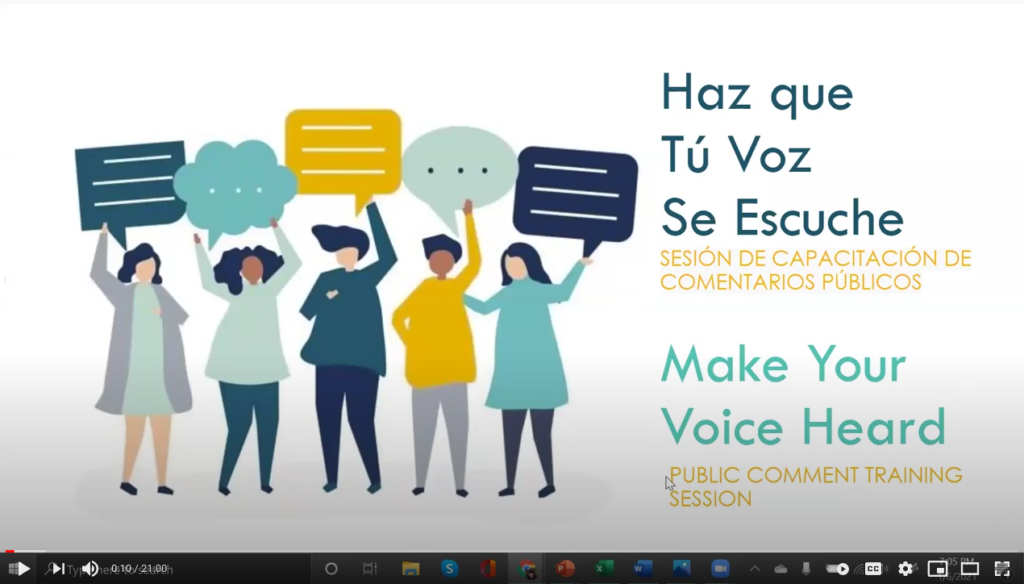Colorado is home to numerous mountain peaks, vast shortgrass prairies, and some of the most pristine lands in the country. However, many do not realize that Colorado is also home to the most polluted zip code in the country. That zip code is 80216 in North Denver and is home to the neighborhoods of Globeville and Elyria-Swansea, known by residents as “GES.”
Many factors have contributed to making GES the most polluted zip code, namely, Colorado’s second-largest polluter — the Suncor Energy refinery. Suncor sits just North of Denver in Commerce City, near Sand Creek and the South Platte River. Suncor, located in a populated area and contributes significantly to the climate crisis and “F grade” air quality in the Denver Metro North Front Range Area. Suncor actively spews toxic pollution over the 80% BIPOC, working-class neighborhoods nearby, harming not only the environment but also people’s health.
Suncor has been operating in this area since 2003 when it purchased the refinery from ConocoPhillips. Suncor has been a bad neighbor, consistently violating its permits. Between Dec. 31, 2018, and Sept. 2019, Suncor had more than 2,750 certified self-reported opacity limit violations.
Suncor’s refinery also malfunctioned 108 times over the past five years, averaging about one breakdown every three weeks. In 2020 alone — even during the coronavirus crisis when half of its facility was shut down for several months — Suncor reported 14 malfunctions and 111 pollution spikes above permit limits lasting from a few minutes to several days.
Residents living near the Suncor refinery face a litany of health problems, including asthma, heart conditions, cancer, nose bleeds, migraines, and numerous other ailments.
Despite these violations, Suncor’s permits and Suncor’s requests to increase their permits to allow them to release more toxins every year are coming up for renewal.
The Suncor refinery, as a major source polluter, is required to obtain a Title V operating permit. Title V of the Clean Air Act requires Suncor to obtain an operating permit, operate in compliance with that permit, and annually certify compliance. The EPA delegated Title V permitting authority in Colorado to the Air Pollution Control Division (APCD), and Suncor’s Plant 2 permit is up for renewal in January 2021.
Suncor’s outdated permits from 2006 and 2012 allow them to emit 866,100 tons a year of heat-trapping gases and toxic substances including sulfur dioxide, benzene, and hydrogen cyanide. EPA regulations mandate that all permit renewals must occur within 18 months of submission, because any delay will postpone facility implementation of enhanced monitoring procedures required by the Compliance Assurance Monitoring rule and slow emissions reductions that would result from improved monitoring.
The old permits were issued to expire after five years, one in 2011 governing pollution from a main oil processing unit and another in 2017 governing two other main units. Suncor applied to renew their permits in October 2010 and September 2016. Those permits were never renewed and Suncor has been allowed to continue to operate without valid permits and without the benefit of the EPA required Community Assurance Monitoring.
Any request to increase the amount of pollutants Suncor releases should be denied. Instead, APCD should set more strict pollution limits and ensure they are enforced. Suncor already releases dangerous levels of pollution, tainting the contaminated air in the Denver Metro Area at a time when we should be thinking about how to reduce emissions to preserve our planet’s future.
Join us in asking the APCD to deny Suncor’s permit renewal due to multiple violations, or, at a minimum, reduce permitted emission limits, and support impacted communities and workers through a just transition.
We encourage everyone to engage in the permit renewal public comment period for the Suncor refinery, which will begin on or after January 15, 2021. Additional details will follow.
Learn More & Skill Up: Listen to our training on Making Your Voice Heard – Public Comment Training Session
Want more training and tips on how to make your voice heard? In January, 2021 350 CO hosted a bi-lingual training focused on skill-building around offering effective comment in upcoming hearings.
- Click here for the training video: Make Your Voice Heard – Public Comment Training Session
- You can also view the Make Your Voice Heard training in Spanish here.

